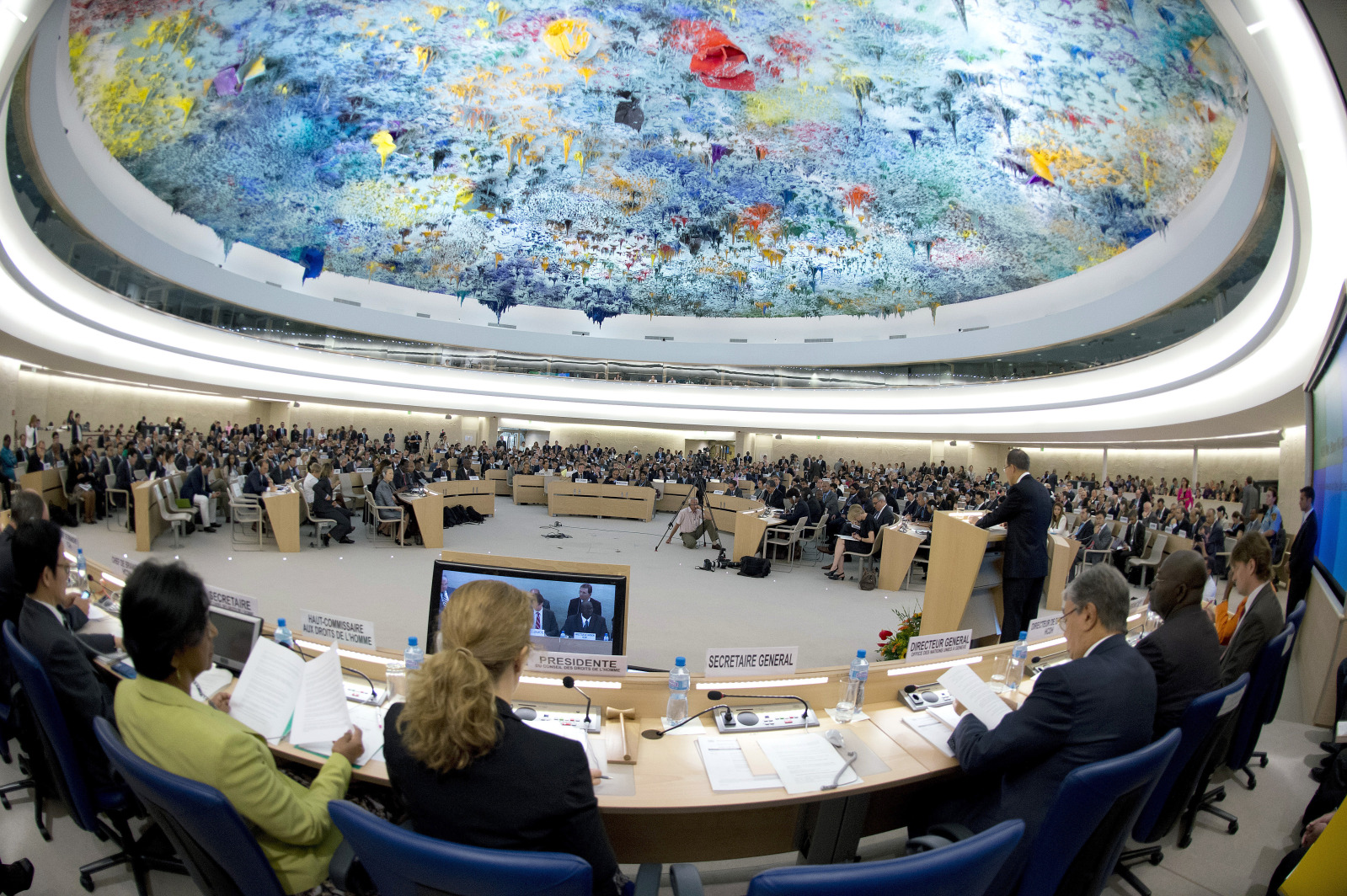Joint statement on behalf of
Amnesty International, Asian Forum for Human Rights and Development (FORUM-ASIA)
CIVICUS, Human Rights Watch, International Commission of Jurists (ICJ), International Lesbian, Gay, Bisexual, Trans and Intersex Association (ILGA)
International Longevity Center Global Alliance, International Platform Against Impunity, International Service for Human Rights (ISHR)
Mr President,
At the close of this session, we welcome the commitment by 48 States from all regions to enhance the Council’s success and effectiveness, and the performance of HRC members through a series of concrete actions. The steps outlined by the Netherlands, such as more competitive HRC elections and the application of objective human rights based criteria to determine whether and how to act on situations of concern, would go a long way in making the Council more accessible, effective, and protective.
The leadership shown by States in the development of joint statements on killings in the Philippines’ so-called ‘war on drugs’ and threats against human rights defenders, and on the increasingly dire situation in the Maldives are examples of this. We regret the lack of such leadership on States including China and Egypt.
Although we’d hoped for a more robust response on the DRC from the Council, the international team of experts brings hope of uncovering the truth about the horrific violence in the Kasai. The UN, this Council, and the DRC itself must now ensure unhindered access for and support to the team, for it to independently produce a robust and credible report, which will constitute a step towards accountability.
We congratulate Cote d’Ivoire for its 6 years of cooperation with the UN and the mandate of the Independent Expert. We urge the Council to continue to pay attention to the human rights situation, particularly in the context of recent mutinies, and to assist the country in the implementation of the Independent Expert’s recommendations, including by striving for A-status for its NHRI.
We also share and echo the joint call by several States urging you to create a publicly accessible register of alleged acts of intimidation or reprisals and to provide short oral updates on cases at the start of every Item 5 general debate giving States concerned the opportunity to respond.
We also welcome the joint statement of the core group on civil society space together with some NGOs, and its reaffirmation that the “substantive participation of civil society makes this Council’s debates and work, including the UPR, richer and more meaningful”.
Mr President,
We are pleased that both resolutions on discrimination and violence against women were adopted by consensus, and that adverse amendments designed to remove language on comprehensive sexuality education and WHRDs were defeated. We regret that Russia and others systematically seek to remove reference to human rights defenders in all resolutions at each session. Denial of the existence of defenders is absurd, given the long history of formal recognition of the concept by the Commission, Council and General Assembly.
We regret that the resolution on the “protection of the family” fails to fully recognise that older persons are individual rights holders entitled to self-determination and autonomy, and that it ignores a significant UN process, the GA Open-Ended Working Group on Ageing. The resolution also fails to acknowledge that diverse forms of the family exist. The entire initiative is implicated in an effort to subvert the aims of our human rights system and the universality of rights.
In closing, Mr President, we are dismayed at the roll back and lack of progress in terms of ensuring the most effective participation of civil society, in accordance with established rules and practice of the Council. Although symbolic, the massive reduction of reserved NGO desk space in this room is illustrative of this.
We are concerned about the lack of formal engagement by you and your Bureau with civil society, the absence of visible steps to curb and respond to intimidation or reprisals, and the abusive interruptions of NGO statements, including in some instances by the chair. And we look forward to engaging with your office to reverse this negative trend.
Thank you.
For a PDF version of this statement, click here.




